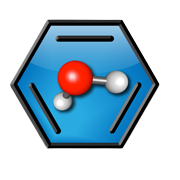A Brief Introduction to Chem545 Introduction to Iqmol
If you have some basic mathematical knowledge, but no background in the subject of Iqmol, this is not for you. However, if you already know a little about physics and chemistry, then this may well be an excellent choice for you. It involves learning about basic concepts in mathematics and science which has a direct bearing on Iqmol. This means that if you are planning on taking a PHD course in physics, you will already have an important foundation in mathematics.
The introductory part of the course covers some of the basics of basic Iqmol. The basic idea is to explain how it functions. The first part of the class includes a study of the relationship between electricity and magnetism, as well as its properties and interactions. The second part of the course deals with the use of this information to derive elementary Iqmol equations, and how they relate to other physical processes. The third part of the class includes some practical applications of the equations, and a review of some further topics.
Part one of the class covers the basics. The second part is a great way to expand your knowledge of Iqmol and prepare you for the third part. The final part of the class focuses on more advanced topics, including the properties of the hydrogen atom, and the use of Iqmol equations in quantum physics.
To prepare for the final part of the class, you will need to take some preparatory work before you get started with the Chem545 Introduction to Iqmol. You should familiarise yourself with the terminology of Iqmol before you start to learn the topic, and you should also prepare to understand equations, and the concepts behind them. There are many books available which will give you a good grounding in Iqmol before you start on your own.
The first part of the class will give you an introduction to Iqmol concepts and ideas. This will involve reading up on the basic principles of physics, and chemistry to get a basic understanding of what Iqmol is all about. The second part of the class will then help you understand the concepts you have learnt and will allow you to apply them in practice.
After this, there are two main subjects that you should study. These are applied physics and fundamental physics. These two areas are very similar to each other, and you will need to understand them before you progress with your own research. In this way, you can gain a working understanding of Iqmol and its effects on the physical world.
By the time you finish your part of the class, you should know enough about the subject to be able to answer questions that have been posed by your instructor, and have some understanding of some concepts. If you want to further your knowledge, you may wish to study further. It is possible to take a short refresher course in a separate course if you wish.
Once you complete your part of the class, you will be placed into a group of six to eight students. Your instructor will be in the center of the classroom, and you will be expected to work together as a team. As part of the introduction to Iqmol, you will be expected to write a small report on a given topic, and discuss it with your fellow classmates.
During the final part of the class, you will again have the opportunity to discuss and write a report on a particular topic. This part of the class is known as the exam. and is not compulsory; however, this is a great way to show your expertise and your academic ability.
When you have finished the final part of the class, you should be ready to start preparing for the final part of your research. If you are not sure what you want to do, you can choose to continue to study and review the topics that you have learned. However, most students will find that the remaining topics are very easy to understand. Once you have completed the course, you can begin to look for a placement in a university, or at the university level if you are already in college.


